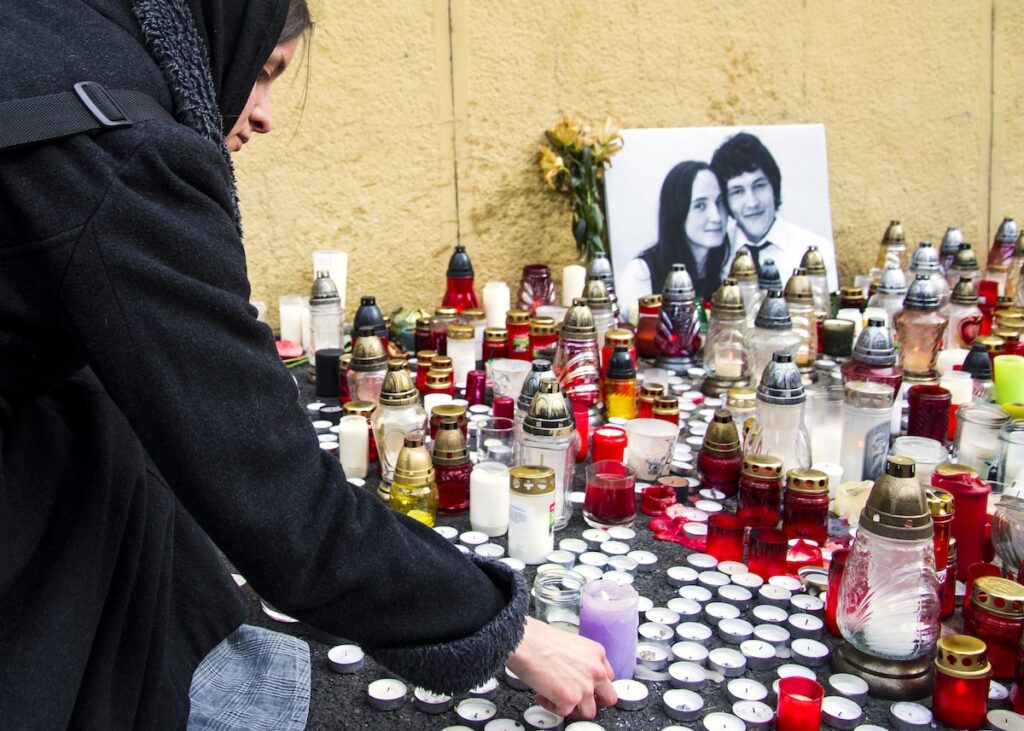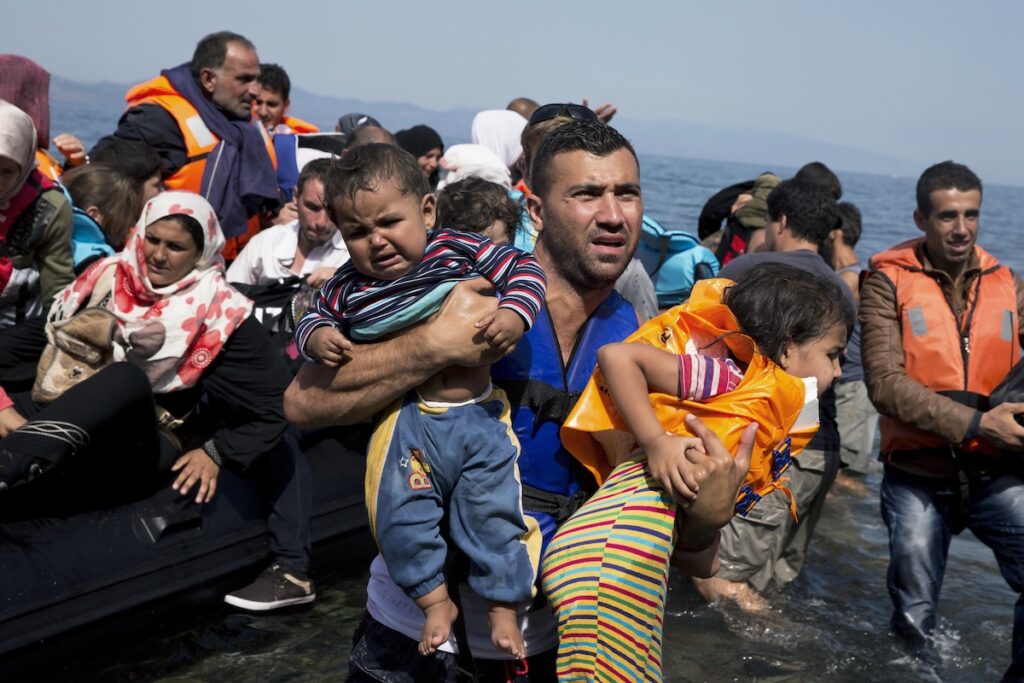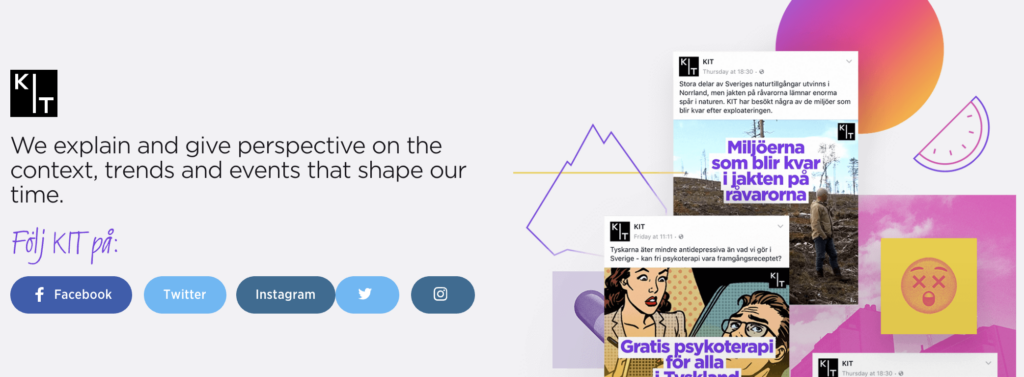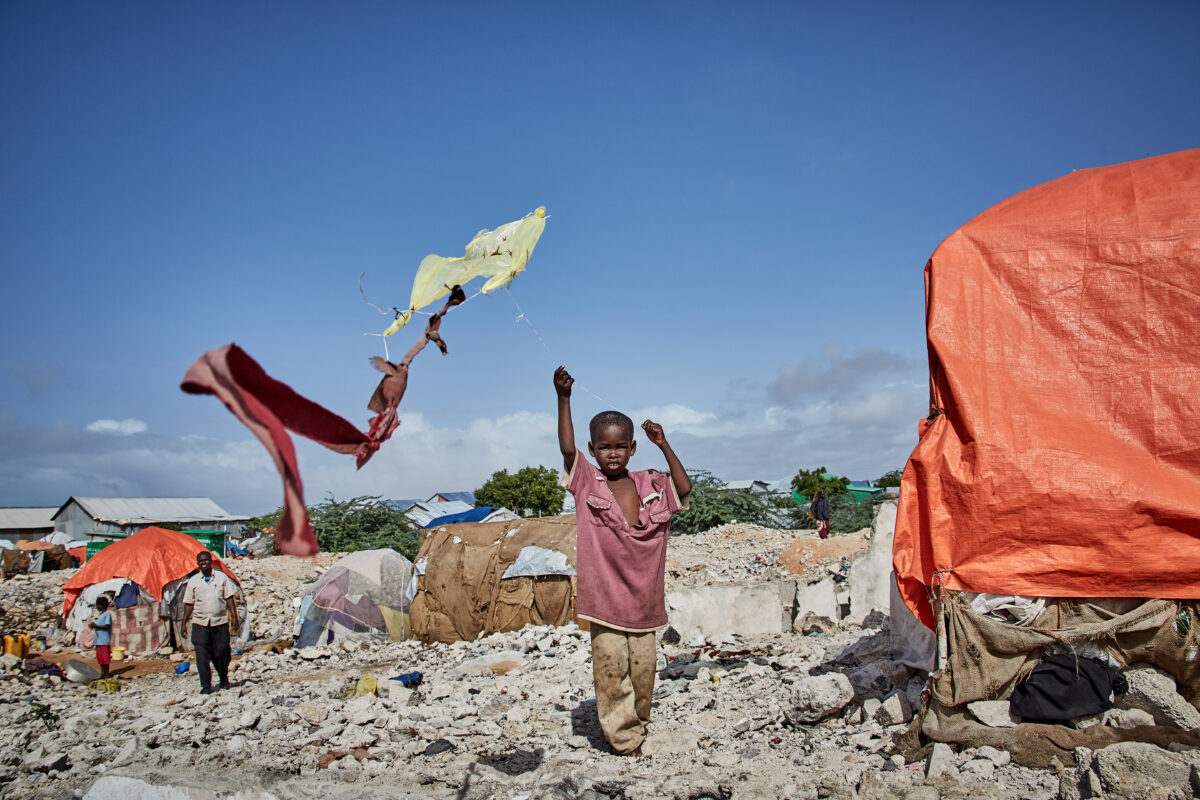To journalists at Slovak news startup Denník N, the murder of reporter Ján Kuciak underlined the importance of the experiment they started more than three years ago.
Kuciak was shot in February as he investigated links between the Italian mafia and political corruption in Slovakia for digital news outlet Aktuality.sk and the Organized Crime and Corruption Reporting Project. His death revealed the lengths to which criminals, corrupt officials, shady businesspeople, and others would go to quash a story in the Central European country.
Slovak journalists were more frequently threatened than Denník N (“Daily Independent”) co-founder and editor Matúš Kostolný had imagined when he and his colleagues launched their news website in January 2015. At the time, they were worried mostly about their integrity as journalists. A few months earlier, Penta Investments, a company implicated in privatization scandals in Slovakia, became a major investor in their then-employer, Denník SME (“Daily We Are”), the third-largest newspaper in the country.
SME had reported on the worrisome connections between Penta executives and Slovak politicians. Staffers like Kostolný were concerned their new bosses might meddle in the newsroom. “We were working together in the most serious newspaper in Slovakia,” he says. “When the paper changed, and the oligarch entered the publishing house, I found a reason to leave. I didn’t want to work for these people.”
European politics and culture have created a different financial and editorial mix for journalism startups than those on the other side of the Atlantic
Denník N and other European journalism startups illustrate the unique pressures driving media innovation on the continent today, especially in smaller countries that lack a traditionally independent press, widely read languages, or affluent audiences like those in Britain, France, and Germany.
In formerly communist countries like Slovakia and Poland, for example, the chaos that arose after the fall of the Berlin Wall helped corrupt politicians and organized crime collude to dominate local media. In Southern Europe, tough economic times and the refugee crisis led journalists to launch new projects. Entrepreneurs in Scandinavian countries face similar issues despite their region’s wealth; financial pressures and other challenges—like the rise of fake news—make it imperative to try something new.
European politics and culture have created a different financial and editorial mix for journalism startups than those on the other side of the Atlantic. American startups tend to fall into two categories: either tech-centered—think news-aggregating apps—or focused on niche beats, like investigative reporting, that have suffered as rapid technological change, fragmented audiences, and corporate cutbacks have devastated newsrooms. The former often enjoy funding from venture capitalists whose primary goal is winning a return on their investments; the latter have access to well-endowed foundations seeking to compensate for market shortcomings.
European startups in countries with relatively small populations are less attractive to American-style venture capital, and Europe doesn’t have as robust a culture of philanthropy as the U.S. does. After the 2008 financial crisis, for example, German, Swiss, and many other investors who had bet big on Central and Eastern European news outlets in the 1990s and 2000s decided to protect their core holdings, selling their shares—opening the door for rich locals with the cash and desire to influence public policy, according to Grzegorz Piechota, a former news editor at Poland’s Gazeta Wyborcza (“Electoral Newspaper”) who is now a researcher at Harvard Business School.
“Basically, you’ve got oligarchs buying out media all over the place,” says Piechota. European foundations and other donors, meanwhile, might provide important seed money for startups, but not the millions that American philanthropists have given over the years to sustain efforts like ProPublica.

Smart European startups are capitalizing on the strengths of their smaller markets and the inexpensive cost of reaching audiences online. They secure money from public-minded investors who want to support a free press that serves as a watchdog on government, develop crowdfunding and a subscriber base of readers who have watched quality news in their native languages disappear, and offer ancillary services, like website design and media consulting, to earn extra money. In countries like Slovakia and Spain, ambitious startups have become major players in the media. Others cultivate specialties, producing news for schoolchildren, hiring refugee writers, and focusing on foreign news.
European journalist-entrepreneurs, like those around the world, aren’t sure if they’ll succeed. Nor do they feel they have the option of not trying. “We’re living in a country where it’s a possible to kill a journalist,” says Kostolný. “But we cannot be afraid or lose the freedom to write what is important to write.”
Here are six European startups worth watching.
Denník N, Slovakia
In March, as Slovakia reeled from the Kuciak assassination, Denník N sent a reporter to Zemplín, a village in eastern Slovakia, to find folks who might have connections with the ‘Ndrangheta, the Italian Mafia clan that Kuciak was investigating before he died. Slovak police arrested seven people in connection with the killing, but released them. The link between the ‘Ndrangheta and Slovak leaders made for a great tale. Members of the organization had introduced their business partner, a topless model and former Miss Universe contestant, to Prime Minister Robert Fico, who made her a close aide even though she lacked experience. According to Kuciak’s reporting, the criminal interests owned nearly 50 square miles of farmland in eastern Slovakia that had garnered more than $15 million in European Union agricultural subsidies over the years.
The Denník N reporter didn’t uncover much related to the Italians. But he stumbled on another story, meeting farmer Juraj Bereš, who claimed men allied to a powerful former Slovak lawmaker beat him over the course of three days in 2015, then harvested and sold his wheat crop and claimed his land. The police and government ignored his pleas for help, he said. Other Slovak and foreign media raced to cover the story. Since then, authorities have opened a fraud investigation and spoken to farmers who say local Slovak political bosses and organized crime figures have likely absconded with hundreds of thousands of dollars of European Union subsidies.
The story added to the public uproar over corruption that led to daily public protests in Slovakia after Kuciak’s death. A week after it was published, Fico resigned.
Stories like these are why Kostolný and around 45 other journalists left SME to establish Denník N. But finding scoops was the least of their problems, says Lukáš Fila, chief executive of N Press, the newspaper’s publisher: “It was more of a challenge from the business side than from the journalistic side. We had no actual experience in running a publishing house. So we learned on the go. It was extremely stressful.”
The announcement of a new paper was itself a news event in Slovakia that helped Denník N’s founders garner around 6,000 paying subscribers before they even launched
Denník N founders were loath to solicit investor money that might require them to compromise their vision. Luckily, their departure and announcement of a new paper was itself a news event in Slovakia that helped them garner around 6,000 paying subscribers before they even launched. They also attracted the interest of six Slovak natives who own Eset, a San Diego-based internet security company. Reflecting their interest in an independent press, those investors own 51 percent of the company but have shares prohibiting them from interfering in the newsroom. The paper’s employees have equity in the rest of the company.
Today, Denník N has 29,000 subscribers who pay around $6 a month. The newspaper’s website features free content that includes links to their competitors and foreign news outlets as well as original stories that non-subscribers can read before they hit a paywall. Those stories range from a think piece on Chinese communism, reported from that country, and interviews with anti-corruption officials to expats’ views on life in Slovakia and beat reporting on Slovakia politics. Google’s Digital News Initiative is also helping to develop the paper’s subscriber system with an eye toward understanding and monetizing their audiences. The strategy attracts around 180,000 unique readers every day and helps sell around 4,000 daily print editions. Last year, Denník N turned a profit for the first time.
That’s good news, says Fila, because Denník N wants to reinvest, grow, and expand its readership, but without outside aid that might require giving up its editorial or business freedom. “I am not sure if we would be glad if we saw the return of Western investors,” he says. “Another crisis comes and what’s going to happen?”
eldiario.es, Spain
Reporters at Spain’s Público, a news website that formerly had a print edition, didn’t walk out of their former newsroom when they saw powerful interests take control in 2012. They were fired by their former boss, media mogul Jaume Roures, who declared Público bankrupt, shuttered the print edition, then purchased the paper through a proxy company—without its debt—and relaunched it online with a rump editorial team.
The episode illustrated how the Spanish press was beholden to corporate interests as the Eurozone crisis ravaged the country’s economy, according to Juan Luis Sánchez, who along with nine other ex-Público journalists and other employees founded eldiario.es, a left-leaning online newspaper where he is now deputy editor in chief. A handful of large corporations own nearly all the media in the country. Those companies in turn are closely allied to political parties. The financial crisis made it easy for owners to cut independently minded journalists who might have sought to explore those connections. “There is no difference between financial power and political power in Spain,” says Sánchez. “Big media groups are trapped.”

In 2014, for example, publishers fired the editors of major broadsheets El País and El Mundo as well as Barcelona-based newspaper La Vanguardia, citing dwindling circulations and other economic troubles. But the editors said they lost their jobs because they had been irritating politicians who had ties to economic interests in their newspapers. More recently, staff at Spain’s public broadcaster wore black on camera to protest government interference in their studio. Those kinds of developments are probably why only around 20 percent of Spaniards believe their country’s press is free from undue political and commercial influence, according to the Reuters Institute for the Study of Journalism’s 2017 Digital News Report.
The motto of eldiario.es is “Journalism despite everything,” a nod to the quixotic nature of the project.
Público readers and others helped make eldiario.es a reality. They embraced the new online newspaper, taking out subscriptions and ads worth around $250,000 to keep the new effort afloat. “In the first week, the members were our oxygen,” says Sánchez. “We didn’t have to ask for loans. We didn’t have to tell advertisers, ‘Work with me and I’ll do something for you.’ We were born free.”
Today, with co-founders and employees owning 70 percent of the business and individual investors, described as “friends,” owning the rest, eldiario.es is a profitable, free publication with a unique subscription model. Around 30,000 “partners” pay about $70 a year or more to receive ad-free stories the night before they are available to the public for free. Partners count for around a third of eldiario.es’s annual budget, while advertising, print sales, and other revenues make up the rest. The newspaper now has around 100 employees in Madrid and bureaus throughout Spain. Around 10 million unique readers visit the site a month.
Eldiario.es ranks seventh in terms of the most popular online news sources in Spain, according to Reuters’ Digital News Report. El País and El Mundo received the most and second-most views.
The motto of eldiario.es is “Journalism despite everything,” a nod to the quixotic nature of the project
Eldiario.es published one of two scoops that led to the resignation of Cristina Cifuentes, regional president of Madrid and a former anti-corruption crusader in Prime Minister Mariano Rajoy’s conservative Popular Party. In March, the newspaper reported that Cifuentes did not attend classes or submit her thesis to earn a master’s degree from a public university in the Spanish capital in 2012 but nonetheless graduated due to fake signatures on her academic records. Prosecutors opened an investigation into the question. Then, in late April, another Spanish media startup called OKDiario posted a video of Cifuentes shoplifting cosmetics in a supermarket in 2011 when she was deputy speaker of the Madrid regional assembly. Police responded to the incident but let her go. The two stories proved too much for Rajoy, who reportedly ordered her to quit.
“This is what independent journalism gets,” said eldiario.es’s website after the resignation in an appeal to readers to become partners.
Eldiario.es extensively covered the Catalan secession crisis, LGBT rights in Spain, refugee issues, and how Spanish officials and others have squirrelled money away in tax havens while ordinary folks have suffered under austerity measures.
In a country where the social welfare system is expansive, Spaniards aren’t used to donating, says Sánchez. But the difference between the number of visitors to the paper’s website and the number of partners suggests eldiario.es has significant room for growth. “Our aspirations are mainstream,” he says. “We don’t want to be the good guys in the corner who are very nice but no one reads. We want to be nice, but in the mainstream, because we want to have an impact.”
Solomon, Greece
Last year, Nasruddin Nizami, an Afghan refugee living in Greece, co-wrote a story about an underground mosque in Athens, which at the time was the only European capital without an officially recognized house of worship for Muslims. He and his co-author published their piece in Solomon, a Greek online magazine and media startup where they both worked. The article’s tone was not objective. It was critical, suggesting that Greeks who opposed the proposed construction of a mosque in the capital were hypocrites.
“When you say you gave democracy to the world, but you won’t allow someone to make a mosque—this is democracy?” asks Nizami, who came to Europe via Greece in 2007, then lived in Britain and elsewhere on the continent before receiving political asylum and settling in Greece.
Solomon posted the story on Facebook, and the hateful comments multiplied. “Greeks can’t accept the negative,” says Nizami.
It was just the reaction that he and his colleagues are trying to change.
The social upheaval related to the influx of refugees into Europe led a group of Greeks and migrants from Afghanistan, Belarus, Russia, and Somalia in early 2016 to create Solomon, an Athens-based nonprofit media collective. Named after an elephant in a José Saramago novel whose character remains the same as he travels the world but who appears differently to observers depending on their culture, Solomon publishes, in Greek and English, stories ranging from human trafficking to lighter features on, say, Somali cooking to opinion articles.
“Being a refugee doesn't mean you can only write about refugees,” says founder Fanis Kollias, a former Greenpeace communications officer who conceived of Solomon as part of his business degree studies. “You’re human. If you want to write about cooking, write about cooking. Or sports. But the truth is that most people wanted to write about migration.”

Solomon runs on a shoestring budget. Most of its writers, editors, and designers have second jobs. Only Kollias works on the project full-time. He funded the launch with a few hundred euros. Later, he and his team—today, around 50 people from 15 countries contribute regularly—received a $12,000 grant from Robert Bosch Foundation for training. But last year they started designing websites, shooting videos, and producing other media for nonprofits and other groups, earning more than $14,000—not bad for a country where pensioners subsist on a few hundred euros a month.
Kollias expects revenues to grow as word of Solomon spreads. Currently each article attracts around 500 readers in Greek and English, but the publication doesn’t advertise or market itself beyond appearances at events promoting integration. He also hoped to receive grants from foundations and others that aim to promote greater acceptance of refugees at a time when xenophobic rightwing movements are on the rise in Europe. Kollias and his colleagues have already changed some minds. When they began, the Greek press described Solomon as a magazine by and for refugees. That elicited hate speech, prompting Kollias to speak to reporters, telling them the magazine was written by refugees and locals for everyone. The press portrayed Solomon differently, and the hate speech has quieted down.
“If you go to our website, you will not see the words ‘refugee’ or ‘migrants’ to describe our team,” he says. “All we care about is their passion about learning, about creating content. This is what social inclusion is all about for us, un-labeling people.”
Update, 7/11/18: Solomon recently received around $140,000 from the Open Society Foundations, giving them the funding they needed to hire 9 people and open an office.
Outriders, Poland
The founders of Poland’s Outriders opted to avoid the bitter politics convulsing their country and continent, where critics say “illiberal” nationalist governments are consolidating power, undermining civil society, and resisting the authority of European Union leaders. Instead, they wanted to focus on original international news that they view as imperative given Poland’s place in an interconnected world.
“We write about everything but Poland. There has been globally less and less foreign coverage for many years,” says Jakub Górnicki, who was a freelance journalist, freedom of information advocate, and travel blogger before founding Outriders. “Many issues which have a local influence on Poland’s public debates are what we used to call foreign issues: migration, Brexit, Catalonia, the E.U.”
Outriders is free but asks readers to agree to make monthly payments averaging around $12. Those, and around $5,000 in press awards and fees from events they’ve held, have helped them raise around $30,000 since launching in September of last year. They’ve got around 700 subscribers and as many as 100,000 people visiting the website on a monthly basis.
The heated political climate in Poland has helped Outriders
The website posts three dispatches per week from Turkey, the Middle East, Latin America, and Ukraine, with China and other countries, stories on environmental issues like clean water and air, and an online news-based comic strip expected soon. Written by freelancers on part-time contracts, the stories range from in-depth reporting—about, for example, Turkish authorities imprisoning student peace activists—to curated news and analysis.
But Outriders’ most innovative work is interactive projects published every six weeks, including photo essays, audio commentary, and graphics on the fight to liberate Mosul, life in Mogadishu, and other topics. Readers can navigate through striking photos of Iraqi soldiers in gun battles against the Islamic State or Somali running in a bombed-out street as they listen to the reporter’s narrative. “Those feral ex-soldiers and orphans who live in groups on the streets, which are connected through the shared addiction of glue fumes, have become the symbol of these cruel times in the city,” wrote Outriders reporter Marcin Suder about street kids in a story from the Somali capital of Mogadishu.
Outriders also has features like a year-in-the-news page that lets readers scroll through snippets of events in chronological order and note where on the planet those events occurred. Lastly, the website offers a free weekly newsletter with around 7,000 subscribers that they say has driven up donations. “We are not in the business model of engagement, but let’s say trust,” Górnicki says. “It’s just a question for us of how many people find our work so good that they are willing to donate to us regularly.”
The heated political climate in Poland has helped Outriders, says Górnicki. The policies of the conservative governments that have ruled the country in recent years have been controversial, including barring journalists from parliamentary proceedings, discrediting academics and journalist critical of government policies, and undercutting the independence of state-owned media. But they have also sparked conversations among ordinary people about society, culture, and the place of journalism, especially because Polish leaders have picked fights with the left-leaning Polish press. “There is a lot of bad PR about Poland these days,” Górnicki says. “A lot of it is well deserved. But our big liberal publishers overreact. I think this is the best time there is for journalism globally.”
Kit, Sweden
Stories about homelessness, corruption in soccer, and fact-checking Swedish politicians’ claims about employment are among the stories that the founders of Kit hope will fill a hole in their country’s media landscape. Launched three years ago with a $5.7 million investment from Stockholm-based Bonnier Growth Media—the venture capital firm owns around two-thirds of the company, with co-founders and employees owning the rest—Kit arose from what co-founder Robert Brännström calls a transformation in the Scandinavian country’s media climate.
Swedish newspapers and broadcasters traditionally enjoyed high audiences until recent years when millennials came of age as potential audiences but lacked any interest in reading newspapers and watching television news, says Brännström, who previously worked for Bonnier and wrote for trade publications. As a result, the mainstream media now tailors news either to readers in their 60s and 70s, who represent their core audience, or experiment with styles that might attract and hook teenagers. Readers in the demographic groups in-between, including millennials and middle-aged readers, don’t have many options.

“There was this kind of strange vacuum in the Swedish market,” Brännström says. “We were looking across the Atlantic, and we saw this explosion of new exciting titles launching—Quartz, Vox, et cetera.”
Given the struggles of mainstream outlets, though, Brännström and his colleagues knew they needed to develop a new business model, too. They came up with a tech solution called Story Engine, a content management system that classifies news articles based on categories and sub-categories. Those categories include subject matter but also tone, editorial intent, and other qualities that Kit staffers call “storytelling dimensions.” Story Engine pays attention to aspects that Google Analytics and other platforms that focus on clicks or keywords ignore. Once a story is posted, Story Engine collects lots of data about the level of engagement readers have with the story. By examining granular detail about the story and how the story performs online, Story Engine gains insight into audience engagement. The system can generate as many as 43 billion different data combinations. That figure might seem too large to be useful, but it demonstrates the granular detail that the system can identify, says Fredrik Strömberg, vice president of product at Kit.
“It’s just a number, not worth any consideration,” says Strömberg, referring to the 43 billion figure. “What is worth considering, though, is if it would be helpful for you as a storyteller to know if you have more success being entertaining or myth-busting when it comes to stories about personal finance…These are the storytelling dimensions that you as an editor can pivot your decision-making around.”
Reporters don’t tailor their work to fit the Story Engine categories or to generate clicks. They use the system to develop story angles before writing; it’s a tool that augments news judgment. The idea is for them to write or edit videos normally and see how Story Engine calculates the impact. Kit journalists are encouraged to try new things, too, because seeing what does not work is also useful. “From the editorial side, it’s just organic,” says Brännström. “We’re not targeting people. We’ve come to think that people will be exposed or tipped off by friends to stories they like.”
The result is a database that draws connections between the taxonomies that reporters input and the stories’ reception among readers. That database is Kit’s real revenue generator, for the company sells its Story Engine services to other firms that want to improve their native advertising or other marketing materials and content. “A mobile phone carrier wants to reach an audience [of] small businesses,” says Brännström. “We look at stories with all this info. They license our platform to their marketing department or get recommendations on how to tell stories to small business owners in social media.”
Today, Kit employs around 50 people, including 15 journalists, says Brännström. He doesn’t see a contradiction between Story Engine and his staffers who report the news and serve as test subjects for Kit’s tech side. The former makes the money to pay the latter. He declined to say whether the company is profitable, but expects it to be sustainable and able to grow soon—though he admitted that Story Engine, not his newsroom, would likely fuel that growth. “Exporting Swedish media into another country—that’s a hassle,” he says. “Scaling this platform to a global audience makes much more sense.”
Koncentrat, Denmark
Journalists sprang into action after a shooter killed 17 students and high school staff in Parkland, Florida. Sole Møller, a San Francisco-based freelance writer, was one of them. But after Møller interviewed students who were among the hundreds of thousands who staged rallies in Northern California to support more gun control, he didn’t publish his story in a newspaper or sell his video to a broadcaster.
Instead, a few weeks later, Danish children were reading his story and discussing the issue in their social studies classes via Koncentrat, a journalism-education startup in Denmark. Launched in February, the startup aims to address the deficit of news literacy that has become a glaring problem in recent years.

“We want to inform teenagers in Denmark about current affairs, and we want to boost their democratic self-confidence while at the same time being a helping hand in the classroom for teachers,” says Koncentrat co-founder Sune Gudmundsson, the site’s chief executive and a former journalist. “Teachers want to use journalism for teaching, but they are often busy.”
Pooling personal funds and a Danish government grant of around $470,000 designed to foster new media in the Nordic country, Koncentrat now has seven full-time employees, around 10 freelance journalists, and four freelance educators. Reporters and editors produce the stories. But educators also vet them and produce assignments, questions, and other materials that teachers might use in the classroom.
*Journalist Thomas Møller Larsen conceived the idea for Koncentrat in 2012 as part of his master’s thesis at Denmark’s Roskilde University. Larsen, art director Poul Thye Olsson, communications professional Mikkel Jaedicke Thorndahl and others secured funding from the Danish government for early versions of the site and to develop its school-oriented business model.
After Larsen left in 2017, Sune Gudmundsson and business partner Sven Johannesen took the idea further, in part based on a study that found Danish kids knew about democratic values but were less likely to vote, join a demonstration, volunteer, or write a letter to a newspaper than youths in other Scandinavian countries. Gudmundsson and Johannesen, who serves as editor in chief, had written a book for high school students about containerization, the revolution in the global economy that took place when container ships radically reduced the cost of shipping. They realized there was a market for news for kids.
Currently around 15 schools use Koncentrat materials for students ages 13 to 16, paying around $6 per student for the service. Koncentrat needs to only sign up 10 percent of the 2,400 public and private schools in Denmark to generate significant revenues, Gudmundsson and Johannesen believe.
Koncentrat aims to address the deficit of news literacy that has become a glaring problem in recent years
The startup also sends out newsletters that help teachers keep track of new stories and novel applications for stories that can be re-used in language, civics, history, and other courses. In the process, students study news from multiple angles, a potentially good strategy to help them distinguish between quality and fake news.
The trick, Gudmundsson and Johannesen say, is not pursuing the same doom and gloom journalism that has turned off so many people in Denmark and elsewhere. “We don’t want to depress the kids,” says Johannesen. “We want to show them they can change the world. They can have an opinion. We don’t tell them what is right or wrong but that it’s important if they have an opinion themselves.”
While they might be taking different paths than Koncentrat, other startups throughout Europe are striving for similar goals for their audiences. “There has been talk for many years about the decline in subscribers and advertising money,” says Johannesen. “But at the same time, you see the rise of niche media—only writing for teenagers, as we do. The big question is, can people make things that can work?”r'
*Editor's note: This article has been updated to clarify the roles of those involved in the founding of Koncentrat.



